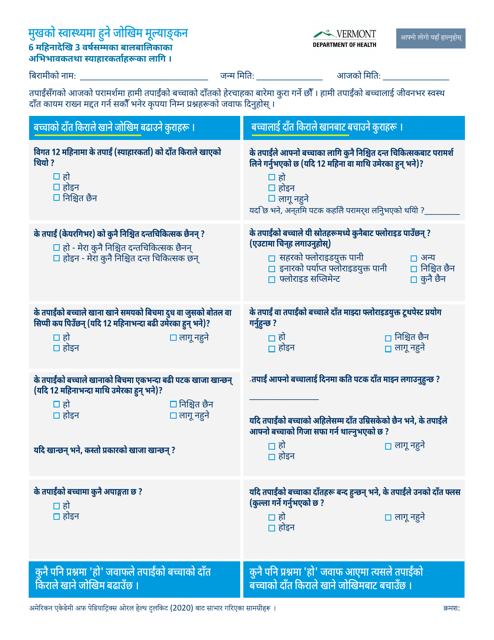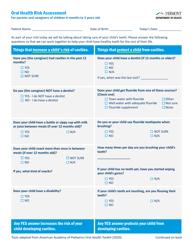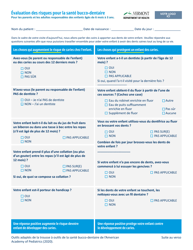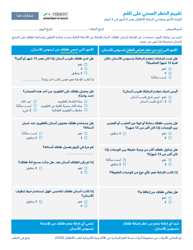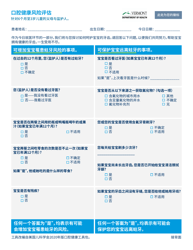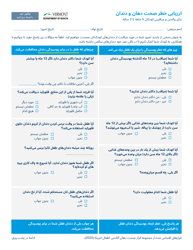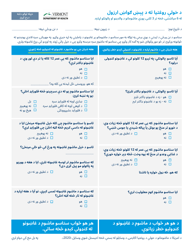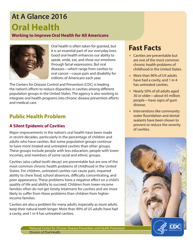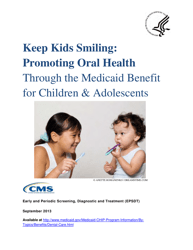Oral Health Risk Assessment for Parents and Caregivers of Children 6 Months to 3 Years Old - Vermont (Nepali)
This is a legal document that was released by the Vermont Department of Health - a government authority operating within Vermont.
The document is provided in Nepali.
FAQ
Q: What is an oral health risk assessment?
A: An oral health risk assessment is an evaluation of a child's oral health and the risk factors that may contribute to dental problems.
Q: Why is an oral health risk assessment important for children?
A: An oral health risk assessment is important for children because it helps identify potential issues and allows for early intervention to prevent dental problems.
Q: At what age should an oral health risk assessment be done for children?
A: An oral health risk assessment should be done for children between 6 months and 3 years old.
Q: Who should perform an oral health risk assessment?
A: An oral health risk assessment can be performed by a dentist, dental hygienist, or other healthcare professionals.
Q: What are the risk factors that may contribute to dental problems in children?
A: Risk factors that may contribute to dental problems in children include poor oral hygiene, sugary food and drinks, bottle feeding at bedtime, and a family history of dental issues.
Q: How can caregivers promote good oral health for children?
A: Caregivers can promote good oral health for children by brushing their teeth twice a day with fluoride toothpaste, limiting sugary food and drinks, and scheduling regular dental check-ups.
Q: What are the consequences of poor oral health in children?
A: Poor oral health in children can lead to tooth decay, pain, infections, difficulties in eating and speaking, and potential long-term dental issues.
Form Details:
- The latest edition currently provided by the Vermont Department of Health;
- Ready to use and print;
- Easy to customize;
- Compatible with most PDF-viewing applications;
Download a printable version of the form by clicking the link below or browse more documents and templates provided by the Vermont Department of Health.
